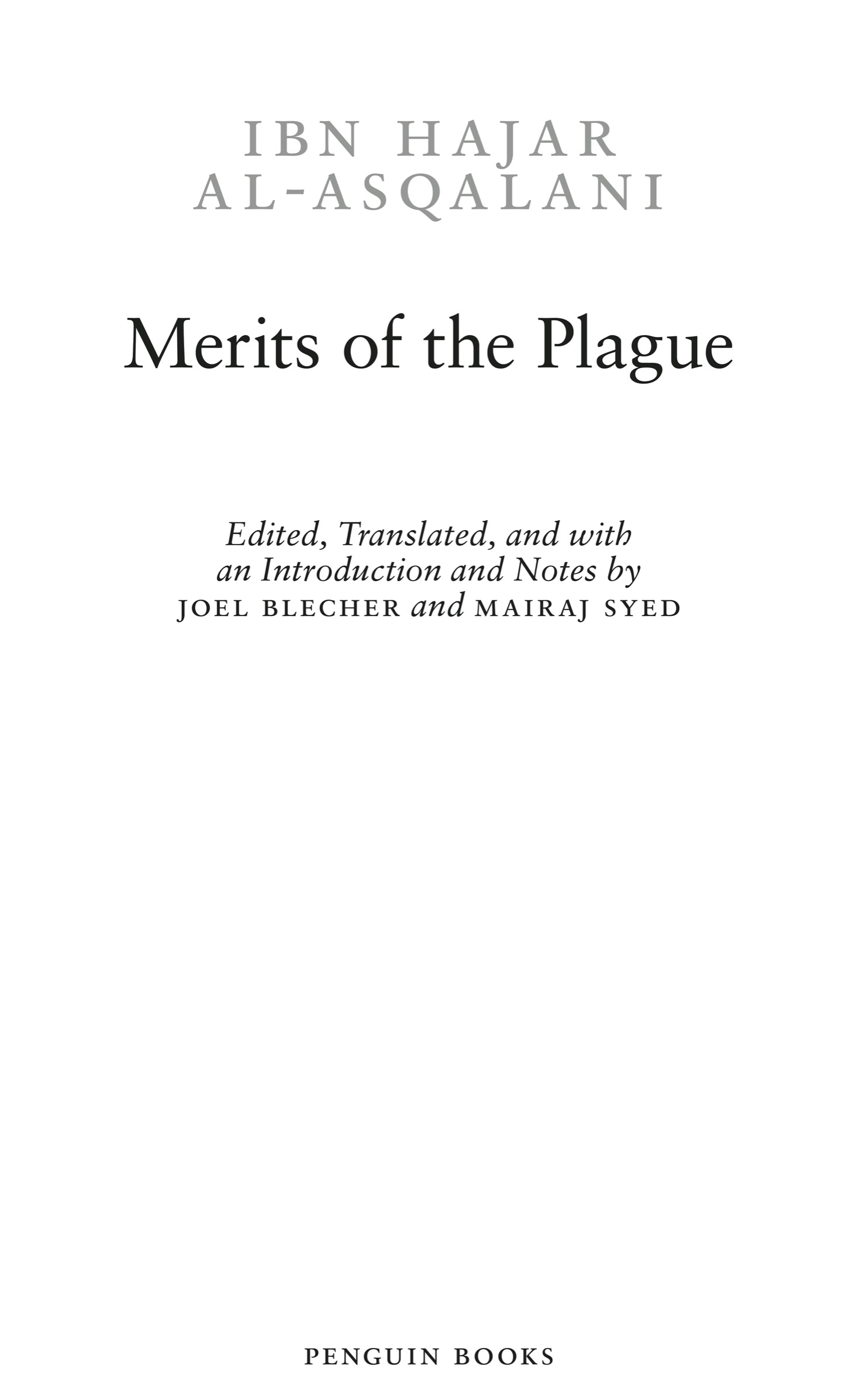penguin  classics
classics
MERITS OF THE PLAGUE
ibn hajar al-asqalani (d. 852/1449 ) was a master of prophetic traditions, a prodigious historian and biographer, a chief judge on the highest court in the Mamluk Sultanate, and a trader raised by a powerful family of spice merchants. His world was shaped by the legacy of the Black Death; indeed, he lost three of his children to the plague. His masterpiece was a multivolume commentary on prophetic traditions called Fatal-Br (The Divine Aid to Victory), parts of which he incorporated into Merits of the Plague. He authored religious poetry and several voluminous histories and biographical dictionaries that chronicled events and notable persons of the seventh and eighth Islamic centuries. His works are still consulted today by historians and religious scholars alike.
joel blecher is Associate Professor of History at The George Washington University and the author of Said the Prophet of God: Hadith Commentary across a Millennium, which has been translated into Arabic. He is the author of numerous articles, and his work has been supported by the National Endowment for the Humanities, the American Council of Learned Societies, the Institute for Advanced Study at Princeton, and the Kluge Center at the Library of Congress. He has spoken about the Islamic world on public radio and numerous podcasts, and has contributed to The Atlantic.
mairaj syed is Associate Professor of Religious Studies, Middle East and South Asia Studies, and former director of the Medieval and Early Modern Studies program at the University of California, Davis. He is the author of Coercion and Responsibility in Islam: A Study in Ethics and Law, and many articles on Islamic thought. He is the recipient of numerous awards and grants for his research, including a Fulbright Fellowship.
PENGUIN BOOKS
An imprint of Penguin Random House LLC
penguinrandomhouse.com
Translation, introduction, suggestions for further reading, and notes copyright 2023 by Joel Blecher and Mairaj Syed
Penguin Random House supports copyright. Copyright fuels creativity, encourages diverse voices, promotes free speech, and creates a vibrant culture. Thank you for buying an authorized edition of this book and for complying with copyright laws by not reproducing, scanning, or distributing any part of it in any form without permission. You are supporting writers and allowing Penguin Random House to continue to publish books for every reader.
Map design by Joel Blecher and Mairaj Syed
Map cartography by Bill Nelson
library of congress cataloging-in-publication data
Names: Ibn ajar al-Asqaln, Amad ibn Al, 13721449 author. | Blecher, Joel, 1982- editor, translator. | Syed, Mairaj U., editor, translator.
Title: Merits of the plague / Ibn Hajar al-Asqaln ; edited, translated, and with an Introduction and Notes by Joel Blecher, and Mairaj Syed. Includes bibliographical references and index.
Identifiers: LCCN 2022037454 (print) | LCCN 2022037455 (ebook) | ISBN 9780143136613 (paperback) | ISBN 9780525508113 (ebook)
Subjects: LCSH: PlagueReligious aspectsIslam. | PlagueHistoryEarly works to 1800.
Classification: LCC RC172 .I26 2023 (print) | LCC RC172 (ebook) | DDC 614.5/732dc23/eng/20221011
LC record available at https://lccn.loc.gov/2022037454
LC ebook record available at https://lccn.loc.gov/2022037455
Cover art: Marcos Chin
Adapted for ebook by Estelle Malmed
pid_prh_6.0_142789176_c0_r0
For Aria and Hawthorn
For Taj and Zakira Syed
and
For those lost in the pandemic
Contents
MERITS OF THE PLAGUE
_142789176_
Introduction
This book was conceived in the spring of 2020, during the early days of the coronavirus pandemic as dread, chaos, lockdowns, and death gripped the world. Struggling to absorb our new circumstances, many readers, ourselves included, turned to classic works on the plague with fresh eyes. Those works offered a sort of brutal comfort, a reminder that humans have faced times like these in the pastindeed, times much worse than theseand made sense of them. Passages crafted hundreds of years ago or more, which once seemed arcane and fanciful, now offered profound insights across time and spoke to our current moment of astonishment and despair. Reports of the plagues daily death tolls that scholars once viewed as inaccurately high now seemed comically low.
In relative terms, the deadliest pandemic in human history was surely the Black Death, which began in the thirteenth century, peaked in the fourteenth century, and recurred periodically for more than four centuries afterward. Even though many modern readers will associate the Black Death primarily as a moment in medieval European historyand plague literature from the Western canon has returned to our bookshelves and nightstands with a vengeancesome of the most profound meditations on the plague were arguably produced outside the West, in the lingua franca of Arabic, and in the cultural and intellectual milieu of Islam. Perhaps this is because Muslim writers, whose audiences crisscrossed Africa and Eurasia for trade, study, and pilgrimage, were best positioned to grasp the truly global scope of the plague and the moral, theological, political, and economic dilemmas it posed.
One of the most important and influential works on the plague in Islamic thought is Ibn ajar al-Asqalns Merits of the Plague, a fifteenth-century book that is here translated from Arabic to English for the first time. The book wrestles with debates over the origins of the disease, the most effective responses to it, and the meaning of suffering and mass death. In doing so, the author crafts a compelling, if counterintuitive, argument: there is merit in the plague if one understands it as an expression of Gods will and an opportunity to practice patience and care for others. To make this case, the author weaves together evidence from stories about the Prophet Muhammad and his Companions, medical works, law books, anecdotes from firsthand experiences, tales of unseen spirits, death-count registers, and plague-era poetry that spans eight centuries and the known Muslim world. In this way, Merits of the Plague is both a profound meditation on the plague as well as a classical anthology of medicine, law, history, traditions, and literature about pandemics in the pre-modern world.
Ibn ajar al-Asqaln, a fifteenth-century Egyptian, a paragon of the Islamic intellectual tradition, was at one time the most powerful judge in the Mamluk Empire. He was also a poet, a merchant, and a once-in-a-generation scholar whose knowledge of the Hadith (the corpus of narratives involving the Prophet Muhammad) was renowned from North Africa to India. The fact that he was stricken by the disease, and lost three children to it, must have had a profound effect on his thinking. He wrote this short volume to serve an audience coming to terms with the new realities brought about by the plague: widespread death, uncertainty, fear of contagion, the limitations of medicine, and crises of faith. While these themes will ring familiar to all readers who lived through the recent pandemic, the book also invites us into a world and a vision of reality inflected by Islamic thought, where the jinn meddle in human affairs and the heavenly rewards of martyrdom give meaning to suffering and the great loss of life.

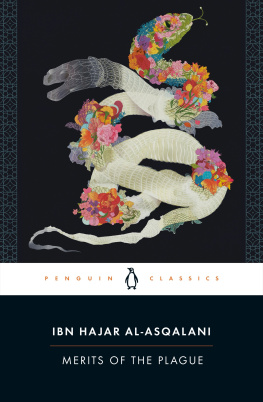
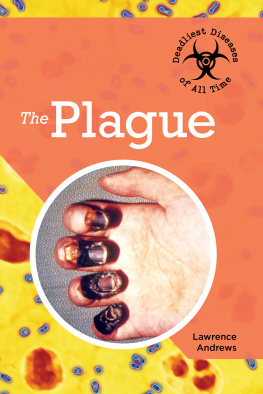

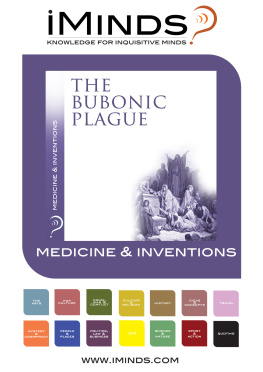
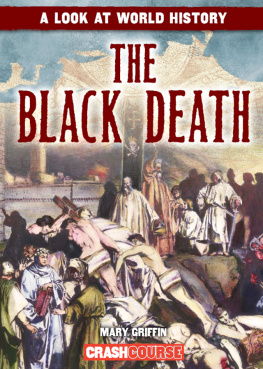
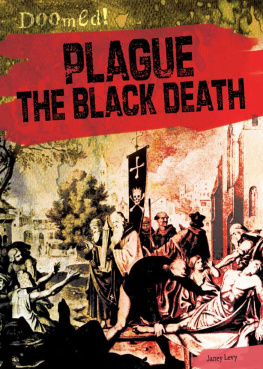

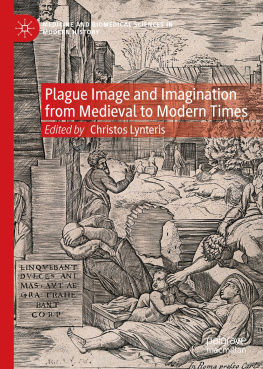
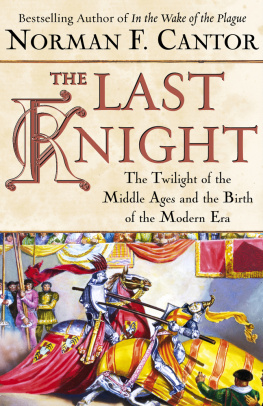
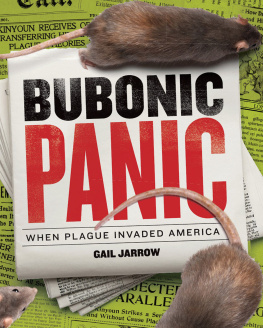
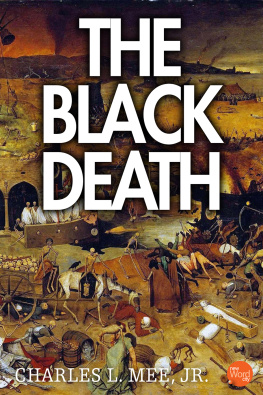
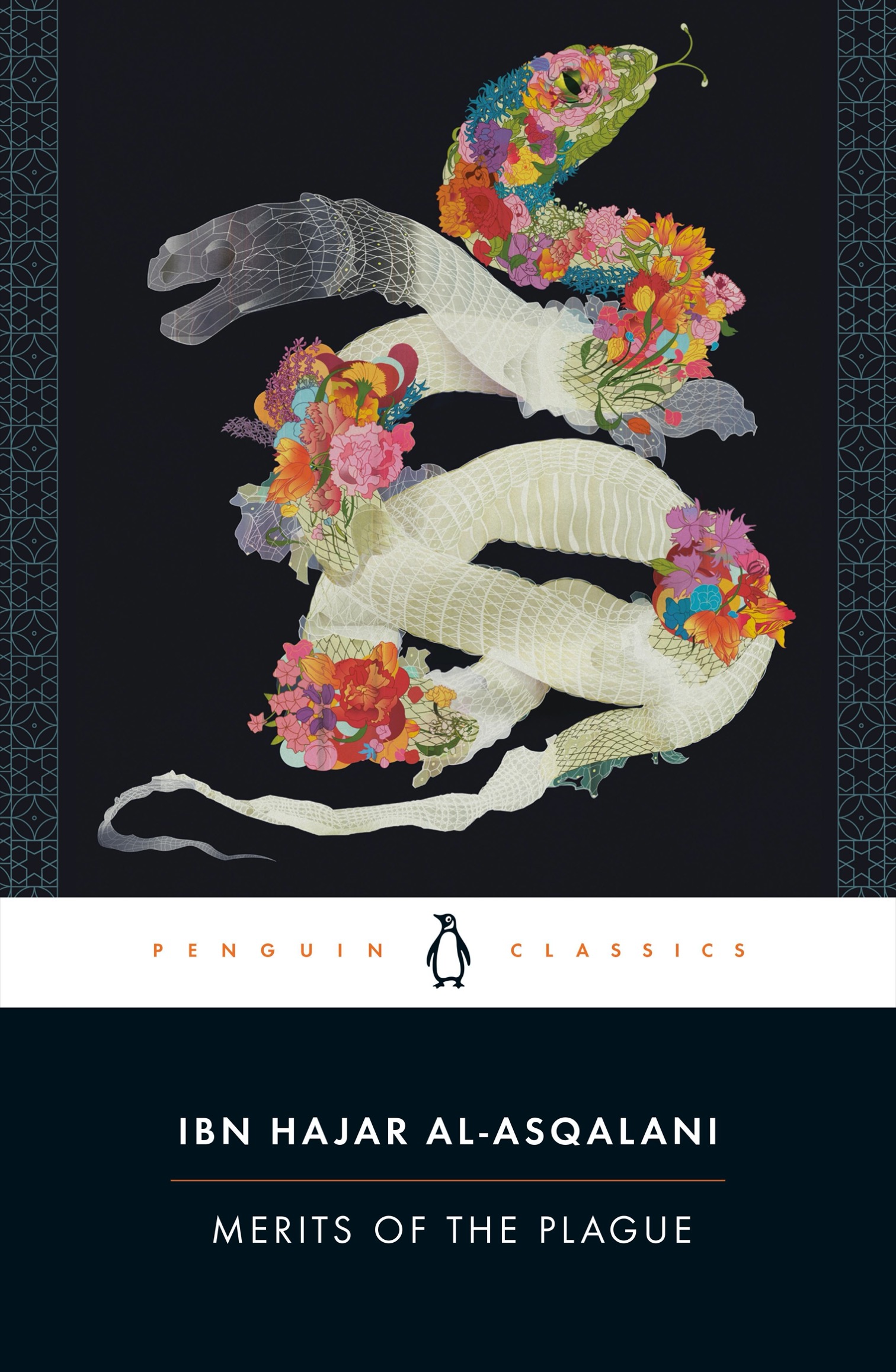
 classics
classics